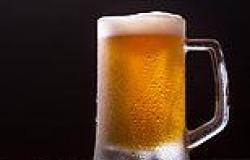DR MICHAEL MOSLEY: Incredible new health secrets linked to not being able to ... trends now
Heavy drinker or a bit of a lightweight (like me)? Blame your genes. A study published last week reveals how big an impact our genes have on our ability to tolerate alcohol, and why some people can drink so much more than others without, at least in the short term, feeling the effects.
Like most people in the UK, I have an alcoholic drink at least once a week, but for me it's very much a love-hate relationship.
While I've never been a big drinker — I flush and get migraines if I drink too much — I do enjoy the occasional glass of red wine with a meal, and sometimes more on an evening out.
These days, however, I become intoxicated faster and on less alcohol than I once did, and the hangovers are much, much worse. This is not surprising, as most of us become more sensitive to alcohol as we get older.
This is partly because our livers don't work as well as they used to, but also because we tend to lose muscle and put on more fat as we age. Fat, unlike muscle, is not so good at soaking up alcohol. But irrespective of age, why is it that some people are much better at handling alcohol?

Gender plays a part: men are normally able to drink more alcohol than women, mainly because we are bigger and tend to have more muscle. But much of it is also down to the luck of the genetic draw.
Compelling evidence for this has emerged from research by the University of California San Diego School of Medicine in America.
Researchers looked into this question by exploring data collected from more than 3 million people by genetics company 23andMe (one of the first commercial firms to analyse your DNA from a saliva sample and provide information about your genes, as well as your ancestors).
I had my DNA analysed and discovered that my ancestors are mainly European, with a touch of the Middle East. I also had a surprising amount of genes inherited from a distant Neanderthal ancestor (twice the normal levels, apparently), and some studies suggest that could be beneficial for my immune system.
As well as ancestry, you also learn a lot about your health, including whether you are more likely to put on weight or whether you have genes that make you particularly vulnerable to dementia (the answer, in my case, to both of those questions is 'no').
Of course, such analysis is not foolproof — we don't know all the genes linked to weight gain, for instance, and there is also the fact that how you live your life can change the ways your genes are expressed. Nonetheless, what the new study showed was that some people had a particular set of genes that meant that when they drank even a modest amount of alcohol they got lots of nasty side-effects, including nausea and flushing, the researchers wrote in eBioMedicine last month.
Normally, when you drink booze, the alcohol (or ethanol) in your drink gets converted by your body into a toxic substance called acetaldehyde. This, in turn, is converted into carbon dioxide and water, which exits your body via your breath or urine.
If you have genes that convert alcohol to acetaldehyde rapidly, or you lack genes that make an enzyme that breaks down acetaldehyde, you get a build-up of this toxic substance, and that quickly makes you feel ill if you drink a lot. Not surprisingly, people like me, who have these genes, tend to drink less than others because of the short-term, unpleasant effects.
According to this study, we don't tend to like whisky and are more prone to flushing and to 'wine headaches'. Because our






